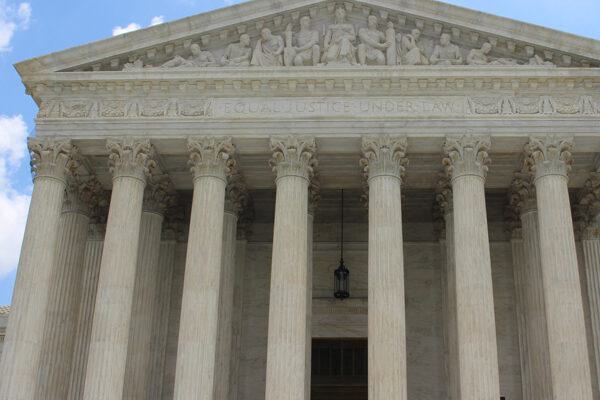Last week, I wrote about Alabama’s congressional redistricting case, in which the Alabama Center for Law and Liberty had the opportunity to file an amicus brief. The Court heard oral argument on Tuesday on this case. My friend Eddie LaCour proved himself to be a great advocate as he stuck up for Alabama’s map.
Jeff Poor was kind enough to have me on his radio show Thursday to discuss how the oral argument went. In my opinion, I think we’re looking at either a 6-3 decision in Alabama’s favor or a 5-4 against the State.
You may remember earlier this year, the five conservatives voted to keep Alabama’s map intact during the primary season. Chief Justice Roberts dissented, arguing that he thought Alabama might be right on the merits but that it was improper to grant relief at that time. What that means is that it appeared from the start that the five conservatives and even Roberts tended to think Alabama was more likely to prevail than not.
Let’s take each of the conservative-leaning justices and see how they think.
First, Clarence Thomas and Neil Gorsuch, the gunslingers of the conservative bloc, were pretty well silent during oral arguments. That is because, as they have indicated in past cases, they believe the Court has been approaching voter-dilution claims like this incorrectly. For them, it is very simple: Neither the Constitution nor the Voting Rights Act requires the states to engage in racial gerrymandering in order to remedy racial discrimination. But that’s what the Court has been doing since the mid-1980s. Thomas and Gorsuch have had enough of it. I don’t think there’s any way they rule in the plaintiffs’ favor.
Next, let’s take Justices Alito, Barrett and Kavanaugh. It did not appear that they were willing to go as far as Thomas and Gorsuch in rethinking the Court’s approach. Nevertheless, the three of them—especially Alito and Barrett—asked many more questions of the plaintiffs during oral argument than the State. It seems to me that this means they’re more skeptical of the plaintiffs’ arguments than Alabama’s.
But now, let’s take another look at Kavanaugh and Roberts, who are the two that are most likely to break ranks with the other conservatives and vote with the liberals. Justice Kavanaugh indicated that he thought the proposed majority-black districts might be too sprawling to be a compact district. Probably realizing that Kavanaugh would be the key to winning, LaCour focused his rebuttals mainly on the points that Kavanaugh raised.
I found Roberts difficult to read. As disappointing as Roberts has been on many issues, he has been pretty good about fighting reverse-racial discrimination. He wrote in 2007 for the Court, “The way to stop discrimination on the basis of race is to stop discriminating on the basis of race.” His dissent from the spring seemed to indicate that he thought the Court had been doing that for a long time. His questions at oral argument, however, were more difficult to decipher.
So the bottom line is this: I think it’s going to come down to how Kavanaugh and Roberts vote. In cases where it is difficult to tell, former U.S. Solicitor General Paul Clement used to ask, “When you’re leaving oral argument, would you rather be us or them?” If I were arguing the case, I would have rather been Alabama than the plaintiffs. Thus, I am more optimistic than not.
But that brings me back to Jeff’s interview from Thursday morning. As we were going over all this, he asked me whether this has the potential to end leftist litigation practices where all they do is sit around and find creative ways to sue the states for voter-dilution claims.
Unfortunately, I think the answer right now is no. The only way to get there, in my opinion, is to have three more justices that think like Thomas and Gorsuch. I do believe they can be persuaded, and if they were willing to listen, that’s what we argued in our brief. I think we are going to see a narrow victory for Alabama in this case. But my hope is that sometime in the near future, the Court will clearly embrace the proposition that a color-blind Constitution does not require the states to engage in racial gerrymandering anymore.
Matt Clark is the President of the Alabama Center for Law and Liberty, a conservative nonprofit law firm that fights for limited government, free markets, and strong families in the courts. His column appears every Friday in 1819 News. The opinions expressed in this column are those of the author. The views and opinions expressed here are those of the author and do not necessarily reflect the policy or position of 1819 News. To comment, please send an email with your name and contact information to Commentary@1819News.com.
Don’t miss out! Subscribe to our newsletter and get our top stories every weekday morning.










